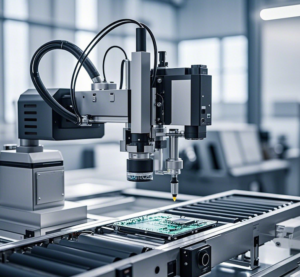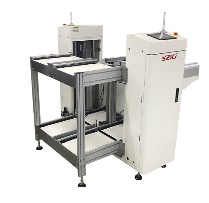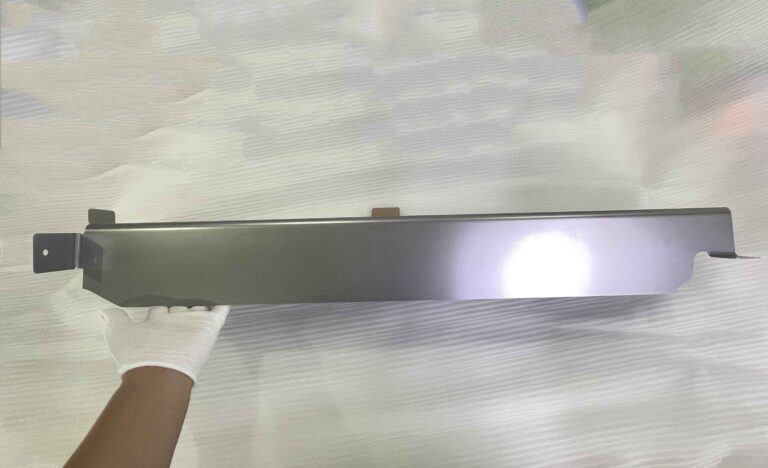PCB Conveyor: Revolutionizing PCB Manufacturing and Assembly
Home » PCB Conveyor: Revolutionizing PCB Manufacturing and Assembly
RECENT POSTS
Share:
- December 13, 2024
Table of Contents
The PCB conveyor is an integral piece of equipment used in the manufacturing and assembly of printed circuit boards (PCBs). These conveyors are designed to handle the delicate nature of PCBs and ensure efficient, continuous movement throughout various stages of production. In this article, we will explore the working principle of the PCB conveyor, its key features, and the advantages it brings to PCB manufacturing.

How Does a PCB Conveyor Work?
A PCB conveyor is designed to transport printed circuit boards across different sections of a production line with minimal handling. The conveyor typically consists of a series of rollers or belts that move the boards through processes such as assembly, testing, and inspection.
The system is equipped with precise control mechanisms, ensuring that each PCB is aligned correctly, avoiding misalignment or damage during the transfer process. Depending on the specific needs of the production line, the conveyor can be customized with various options, such as adjustable speeds, conveyors with or without rollers, and specialized design features for handling different types of PCBs.
Features of PCB Conveyors
- Precision Handling: The PCB conveyor is engineered to handle PCBs with high precision. It ensures that the boards are securely moved without causing damage to sensitive components or circuitry.
- Adjustable Speed: Speed control is a critical feature in the PCB assembly process, and a PCB conveyor allows for flexible speed adjustments to meet specific production requirements.
- Modular Design: Many PCB conveyors are modular, meaning they can be easily customized or expanded to accommodate various stages of PCB manufacturing, from assembly to testing.
- Cleanroom Compatibility: Some PCB conveyors are designed for cleanroom environments, where contamination must be minimized. These conveyors prevent dirt or other contaminants from damaging the PCBs.
Applications of PCB Conveyors
The PCB conveyor plays a vital role in the efficient production of circuit boards in various industries, including consumer electronics, automotive, and telecommunications. Its applications include:
- PCB Assembly: During the PCB assembly process, components are placed onto the board, soldered, and tested. The PCB conveyor ensures that the boards move smoothly between these stages, facilitating a continuous workflow.
- Inspection and Testing: Once the PCB is assembled, it must undergo thorough inspection and testing. The conveyor moves the boards to testing stations where they are examined for faults or defects, ensuring the highest quality standards.
- Packaging and Shipping: After testing, the finished PCBs are often packaged for shipping. The conveyor ensures a seamless transfer from the production line to the packaging area.
Advantages of PCB Conveyors
- Enhanced Efficiency: A PCB conveyor ensures the efficient movement of PCBs, minimizing production delays and improving overall throughput.
- Reduced Risk of Damage: By providing a controlled, steady transfer process, the conveyor reduces the risk of damage to delicate PCBs, helping maintain the integrity of the products.
- Increased Automation: The use of conveyors in PCB manufacturing reduces the need for manual handling, increasing automation and reducing labor costs.
- Versatility: The PCB conveyor can be adapted for different PCB sizes and types, making it a versatile solution for diverse manufacturing needs.
Conclusion
The PCB conveyor is a crucial piece of equipment in modern PCB manufacturing and assembly processes. Facilitating PCBs’ smooth and efficient movement through various production stages, it improves operational efficiency, reduces risks, and enhances overall productivity. Whether for assembly, inspection, or packaging, the PCB conveyor provides a reliable and cost-effective solution for manufacturers aiming to streamline their operations and produce high-quality printed circuit boards.
0



